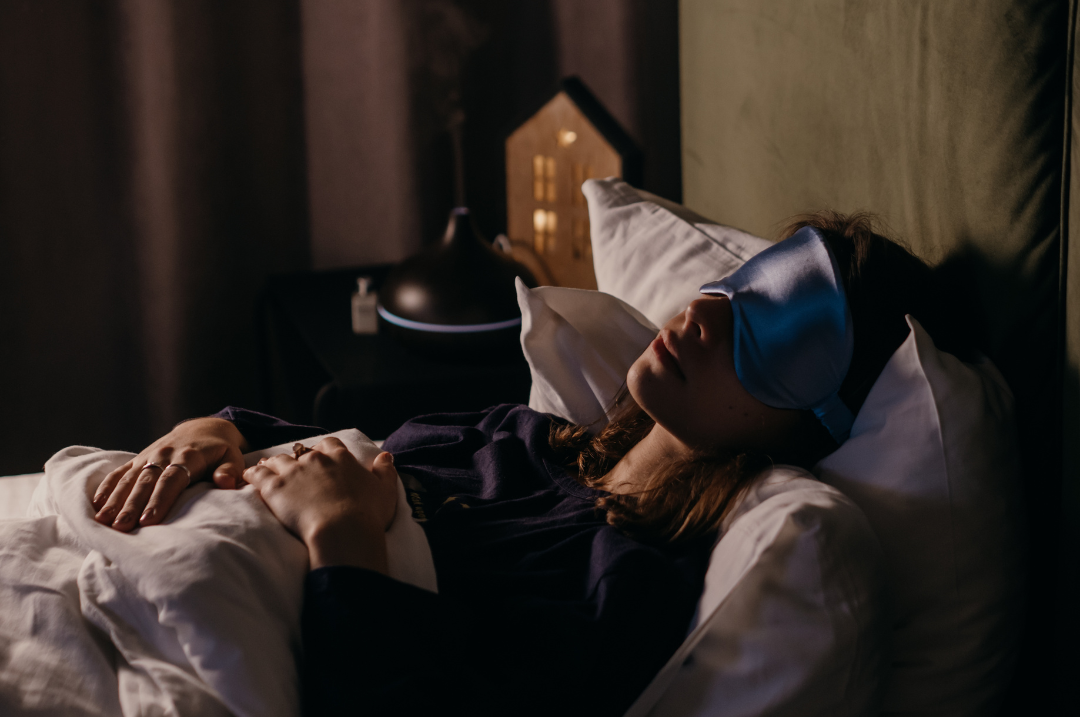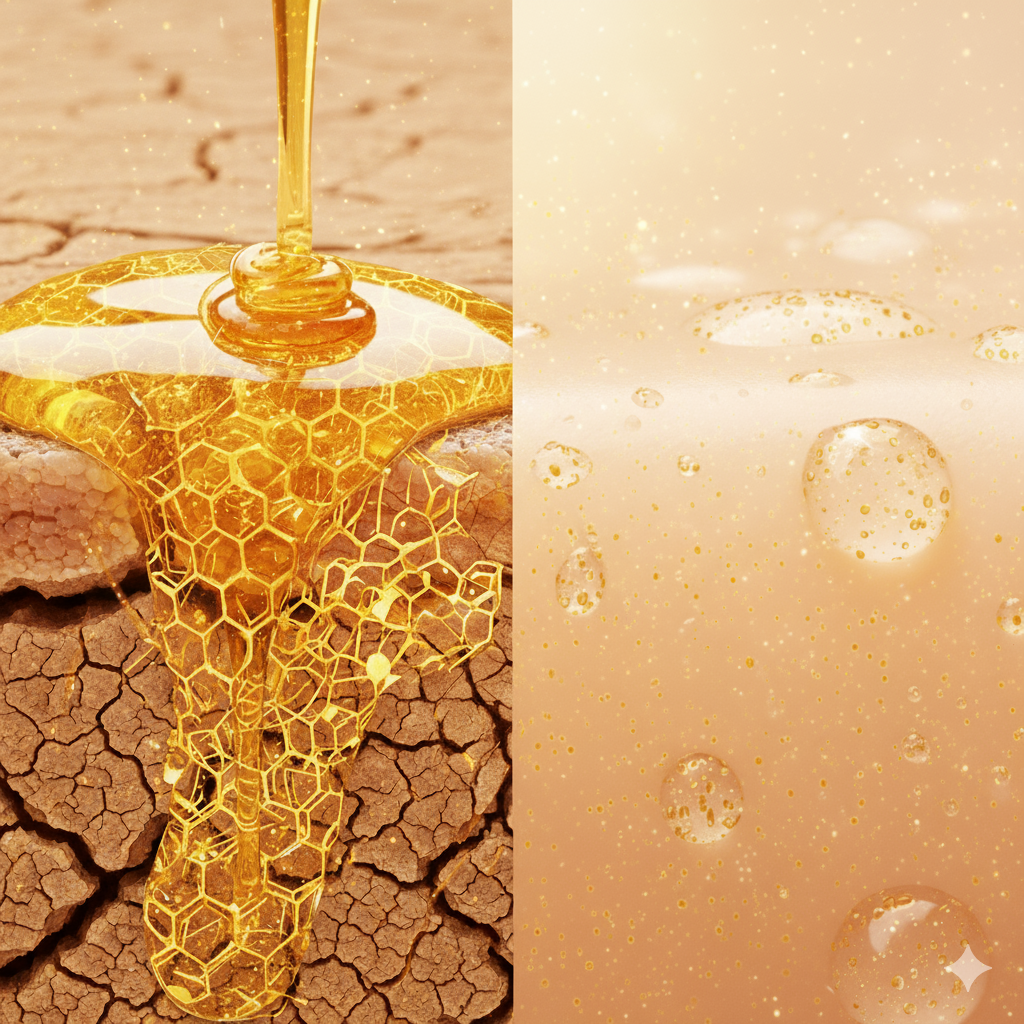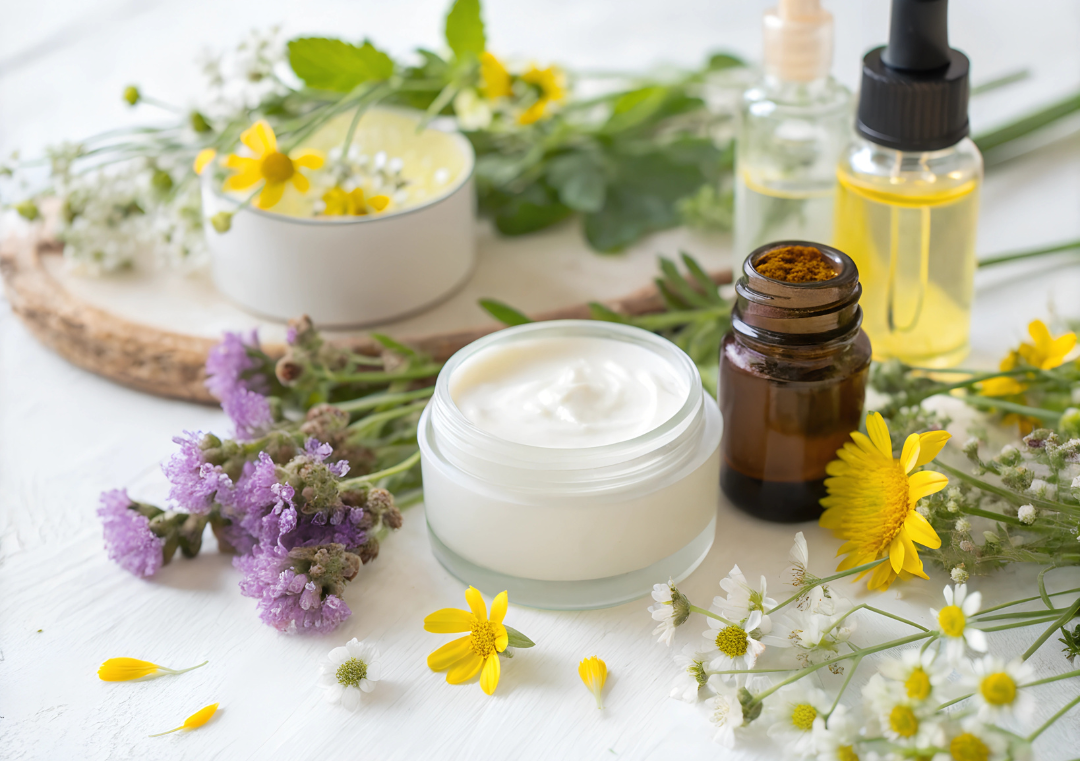“Beauty sleep” — it’s one of those phrases we’ve all heard, usually in passing or as a playful excuse to leave a party early. But while it might sound like a cliché, the science behind beauty sleep is surprisingly real. Sleep is not just a time to rest; it’s a time for renewal, repair, and regeneration. And nowhere is this more visible than in your skin.
Think about it: how many times have you woken up after a rough night and instantly noticed the toll in the mirror — dark circles, dullness, dryness, maybe even a fresh breakout? On the flip side, after a weekend of good rest, your complexion looks brighter, smoother, and healthier. This isn’t just a coincidence. Quality rest quite literally transforms your skin.
In this blog, we’ll explore the fascinating connection between sleep and skin recovery, what happens when you don’t get enough of it, and how you can harness the power of sleep to wake up radiant.
Why Sleep Matters for Skin:
The Biology of Beauty Rest
During the day, your skin is in defense mode — battling UV rays, pollution, free radicals, and stress. At night, your body switches gears into repair mode. This transition is deeply connected to your circadian rhythm, the natural 24-hour cycle that governs everything from hormone release to cell turnover.
1. Collagen Production Peaks at Night
Collagen is the protein that gives your skin firmness and elasticity. As we age, collagen naturally decreases, but poor sleep speeds up this decline. Research published in Clinical and Experimental Dermatology (2015) found that sleep-deprived individuals showed slower recovery from UV damage and had reduced skin barrier function. Translation: less sleep = faster aging.
2. Growth Hormone Fuels Repair
Deep sleep triggers the release of human growth hormone (HGH), essential for tissue regeneration. This hormone helps rebuild damaged cells, including fibroblasts (the cells that make collagen and elastin). Without enough deep sleep, your skin’s ability to recover is significantly weakened.
3. Blood Flow Improves Overnight
Ever wonder why your skin can look plump and glowing in the morning? That’s because circulation increases at night, delivering nutrients and oxygen while flushing out toxins. Poor sleep restricts this process, leaving skin dull and lifeless.

What Happens to Skin Without
Enough Sleep
A single late night might leave you looking a little tired. But when poor sleep becomes a pattern, the consequences are far more serious for your skin health.
-
Dark Circles and Puffiness
Sleep deprivation dilates blood vessels, making dark under-eye shadows more visible. It also causes fluid retention, which leads to puffiness. Combined, these create the classic “tired eyes” look. -
Faster Aging
Poor sleepers had increased fine lines, uneven pigmentation, and reduced elasticity. The visible aging process is measurably faster in those who regularly skimp on sleep. -
More Breakouts, More Inflammation
When you don’t sleep well, cortisol (the stress hormone) rises. Cortisol spikes oil production, clogs pores, and fuels inflammation. That means more breakouts, longer healing times, and flare-ups of conditions like eczema or psoriasis. -
Weakened Skin Barrier
Your skin barrier is its first line of defense against pollution, UV damage, and irritants. Poor sleep compromises this barrier, making skin dry, sensitive, and more prone to redness.
In short: sleep deprivation doesn’t just make you look tired — it damages the very systems your skin needs to stay youthful and resilient.

The Sleep–Skin Connection:
Hormones at Work
To really understand beauty sleep, you need to understand the hormonal shifts that happen during rest.
Cortisol (the stress hormone):
High levels of cortisol break down collagen and elastin. Restful sleep keeps cortisol in check, protecting your skin structure.
Melatonin (the sleep hormone):
Besides regulating sleep, melatonin is a powerful antioxidant that protects against free radical damage. Its levels rise at night, helping your skin fight oxidative stress.
Human Growth Hormone (HGH):
Essential for repair, HGH is released during deep sleep. It fuels tissue regeneration, helping your skin recover from daytime assaults.
When your sleep is disrupted, this delicate hormonal balance is thrown off — and your skin pays the price.
The Visible Signs of Poor Sleep
It’s not just about wrinkles or acne. Chronic lack of sleep creates a very specific “tired face,” which researchers from Sweden’s Karolinska Institute described in their 2010 study on sleep deprivation and attractiveness. Participants who were sleep-deprived were rated as less attractive, less healthy, and less approachable.
The common signs include:
- Pale, lackluster skin
- More pronounced fine lines and wrinkles
- Drooping corners of the mouth
- Hanging eyelids and redness
- Dark circles and swelling under the eyes
Your face becomes a canvas, showing exactly how well — or poorly — you’ve been sleeping.
How Much Sleep Do You Really Need?

The sweet spot for most adults is 7–9 hours per night, according to the National Sleep Foundation. But it’s not just about quantity — quality matters just as much. Cycling through light, deep, and REM sleep stages is essential for repair.
If you’re waking up multiple times a night or feeling groggy despite 8 hours in bed, your skin may not be getting the full benefits of restorative sleep.
How to Improve Sleep Quality
(and Your Skin Along With It)
The best part? Improving your sleep hygiene doesn’t just make you feel better — it directly improves your skin. Here’s how to start:
1. Create a Restful Environment
- Keep your room cool (18–20°C / 65–68°F).
- Invest in blackout curtains to block light.
- Use calming scents like lavender to signal bedtime.
2. Stick to a Consistent Routine
Your circadian rhythm thrives on regularity. Go to bed and wake up at the same time, even on weekends.
3. Limit Blue Light
Screens emit blue light that suppresses melatonin. Power down devices at least an hour before bed. If you can’t, try blue-light-blocking glasses.
4. Mind Your Evening Choices
- Avoid heavy meals, caffeine, and alcohol late in the evening.
- Opt for calming rituals: warm shower, light stretching, herbal tea, or journaling.
5. Pair Sleep with Nighttime Skincare
Since skin permeability is higher at night, this is the ideal time to apply reparative products. Your nighttime ritual could look like this:
- Cleanse to remove makeup and impurities.
- Apply a hydrating toner or essence.
- Use a targeted serum (vitamin C, peptides, or niacinamide).
- Seal with a rich moisturiser to lock in hydration.
This synergy — sleep + skincare — maximizes your skin’s ability to recover.
The Case for Naps:
Can They Help Your Skin?

Short naps (20–30 minutes) can help reduce stress, boost circulation, and restore alertness. While they won’t replace a full night’s rest, research shows that brief naps can lower cortisol and support immune function — both of which indirectly benefit your skin. The key is to keep naps short and early in the day to avoid disrupting nighttime sleep.
A Final Beauty Sleep Ritual —
and the Honey Biotics Edge
As you tuck in for the night, remember: your skin’s most profound transformation doesn’t happen under bright lights — it happens when the lights go out. Quality sleep is not just rest; it’s restoration. It’s the natural reset button that reboots your skin through collagen synthesis, hormone balancing, barrier repair, and detoxification.
Now, imagine amplifying that restorative power with a skincare brand that’s built on real results — not marketing fluff. That’s where Honey Biotics shines.
Crafted with sustainably sourced and scientifically validated natural ingredients — like MGO 570+ Manuka Honey, Vitamin E, Jojoba Oil, and Nutrient-rich Botanicals from Australia, New Zealand, and beyond — Honey Biotics products are formulated to repair, hydrate, and protect while you rest.
Whether it’s the Intense Moisturiser, uniquely concentrated with 33% natural Vitamin E and MGO 570+ Manuka Honey to intensely repair and replenish, even for eczema or environmental stress — or the Hydrating Manuka Serum, Restoring Manuka Eye Gel, Vitamin-Enriched Manuka Moisturiser, Revive Manuka Cleanser, and Nourishing Toner — each step is designed to support your skin’s overnight healing and renewal.
So, here’s your actionable plan:
- Sleep deeply, prioritizing those 7–9 hours of high-quality rest.
- Circle back to your routine: cleanse, hydrate, treat, and deeply moisturize with
- Honey Biotics as part of your evening ritual.
- Wake up to a visible difference — because sleep and skincare aren’t in competition; they compound. Together, they restore, strengthen, and glow.
In the tapestry of skincare, sleep is your most potent base layer. And Honey Biotics? It’s the luxe, nature-powered upgrade that ensures your nighttime journey isn’t just restful — it’s beautifully effective.
When sleep restores within, Honey Biotics restores your skin.




